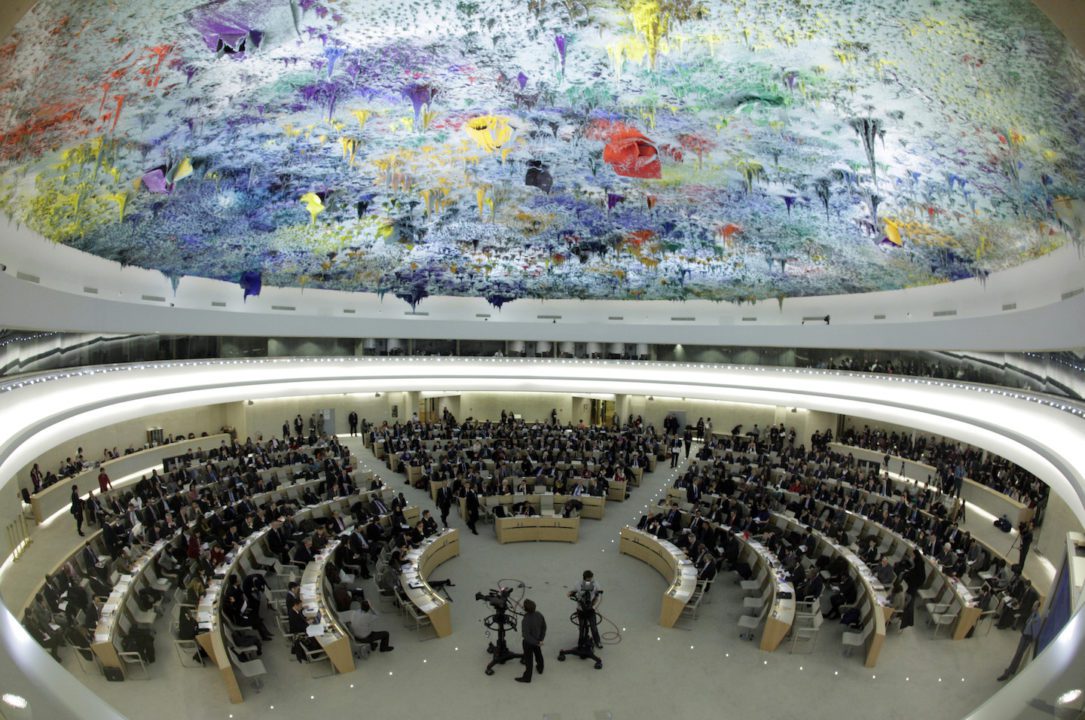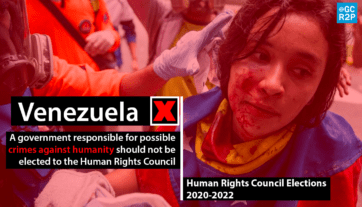
UN Human Rights Council Elections for 2020-2022 and the Responsibility to Protect
Today the UN General Assembly elected Armenia, Brazil, Germany, Indonesia, Japan, Libya, Marshall Islands, Mauritania, Namibia, Netherlands, Poland, Republic of Korea, Sudan and Venezuela to the Human Rights Council (HRC) for the 2020-2022 term. With the elections of Germany, Japan, Marshall Islands, Netherlands and Republic of Korea, 20 of the 47 Council members during 2020 will also be members of the Group of Friends of the Responsibility to Protect in Geneva.
The Human Rights Council and its mechanisms – including the Universal Periodic Review (UPR), special procedures and treaty bodies, as well as the technical assistance provided by the Office of the High Commissioner for Human Rights (OHCHR) – all play an essential role in providing early warning of the risk factors that can lead to crimes against humanity, ethnic cleansing, war crimes and genocide.
The election of states that have a history of violating or abusing human rights undermines the credibility of the HRC. States elected to the HRC are supposed to demonstrate their commitment to the highest standards of human rights, including their full cooperation with all UN mechanisms. These are conditions set forth in UN General Assembly Resolution 60/251. The fact that potential mass atrocity crimes are occurring in a number of HRC member states is deeply disturbing. For example, despite the fact that Venezuela has undermined the promotion and protection of human rights both domestically and internationally, it was elected to the HRC today. Ongoing systematic violations in Venezuela – authorized at the highest level of the government – may amount to crimes against humanity and are currently subject to an investigation by an HRC-mandated body, the Independent International Fact-Finding Mission on Venezuela.
Since 2008, the HRC has referred to states’ responsibility to protect their populations in 46 thematic and country resolutions. But more work needs to be done to turn early warning into timely preventive action. In this regard, the Global Centre for the Responsibility to Protect encourages all HRC members to:
- Improve the link between human rights and peace and security:
o Ask the UN Secretary-General to bring to the attention of the Security Council relevant decisions and reports by the HRC;
o Encourage the UN General Assembly to ensure information collected by special procedures and international investigative mechanisms, including those mandated by the HRC, is relayed to the Security Council in a timely manner;
o Encourage the Security Council to request regular briefings by the High Commissioner for Human Rights;
o Promote a thematic dialogue on human rights and the prevention of mass atrocities. - Make better use of the UPR to detect early warning signs of potential mass atrocity crimes:
o In preparation for your national report, consider what action your government has taken to uphold its primary responsibility to protect all populations on your territory;
o Use the UPR to ask relevant questions regarding the ratification and implementation of core human rights treaties, as well as regarding risk factors related to systematic violations and abuses of human rights. - Ensure the HRC responds in a timely and effective manner to atrocity situations:
o Actively support the adoption of resolutions addressing serious violations of human rights;
o Support HRC-mandated investigative mechanisms with a view to ensure accountability for possible atrocity crimes;
o Where an imminent risk of mass atrocity crimes is detected, Council members should hold a special session in order to help mobilize appropriate international diplomatic action. - Make use of the Irish Principles, which lay out independent and objective considerations to guide decisions on whether and when the HRC should respond to a country-specific situation.
The Global Centre has compiled profiles on each of the newly-elected Human Rights Council members. These provide a basic overview of their commitment to prevent mass atrocities by protecting and promoting human rights.
Related Content
